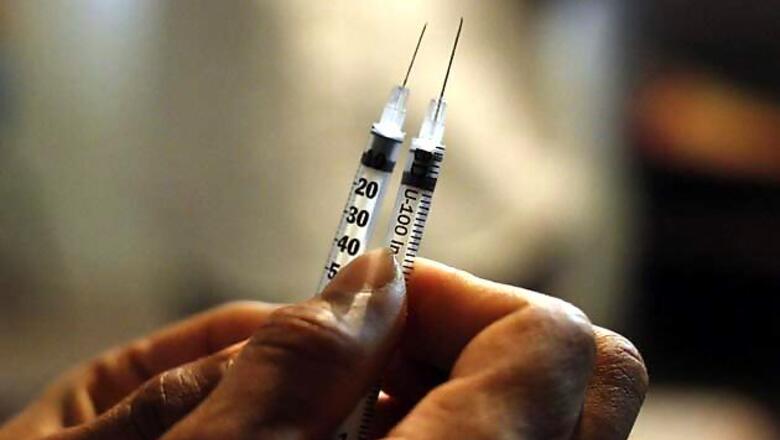
views
Washington: Researchers have inched closer to developing a novel therapy using mutated antibodies to protect people from the dengue virus. Scientists, from Massachusetts Institute of Technology's Koch Institute of Integrative Cancer Research, said that nearly half of the world's population is at risk of infection by the dengue virus, yet there is no specific treatment for the disease.
Despite the threat posed by the disease, developing a vaccine against dengue has so far proved challenging, because dengue is not one virus but four different viruses, or serotypes, each of which must be neutralised by the vaccine. Protecting people from only one or some of the four viruses could cause them to develop the more severe form of dengue if they later become infected with one of the other serotypes, according to Ram Sasisekharan, Professor of Biological Engineering at MIT.
"That was the motivation for carrying out our study, to generate a fully neutralising antibody that works for all four serotypes," he said in a statement. Efforts to develop a therapeutic antibody for dengue are focused on a part of the virus called the envelope protein.
"This is a very critical protein that allows the virus to latch on to the appropriate receptor within the host, to infect them, replicate and spread," Sasisekharan said. The team led by Sasisekharan decided to look for antibodies that target the "A" strand region of the protein.
Such antibodies tend to have much higher potency, but they are unable to neutralise all four serotypes. They chose as their model an antibody known as 4E11, which has been shown in tests to neutralise dengue 1, 2 and 3, but not dengue 4.
Researchers mined existing antibody-antigen complexes to analyse the physical and chemical features that play an important role in their interaction, such as hydrogen bonding and ionic attraction.
They then ranked these features in terms of their importance to each of the antibody-antigen interactions. This significantly narrowed the number of possible changes, or mutations, the researchers needed to make antibody 4E11 in order to improve its ability to neutralise all four viruses, in particular dengue 4.
They came up with 87 possible mutations, which they were able to reduce to just 10 changes after further investigation. When they tested their mutated antibody on samples of the our dengue serotypes in the laboratory, they found it had 450-fold increase in binding to dengue 4, a 20-fold increase in binding for dengue 2, and lesser improvements in binding for dengue 1 and 3, Sasisekharan said.




















Comments
0 comment